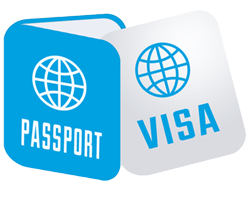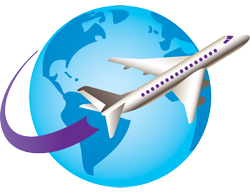Language
Most people in Mauritius are bilingual and are equally fluent in English and French. Creole and French are the main languages in the everyday environment and several oriental languages are also spoken.

You don’t need a visa to enter Mauritius. On arrival, your passport will be stamped allowing entry to the country for 60 days. You will need to be able to provide evidence of onward or return travel.
a) A valid passport, where the expiry date is beyond the intended period of stay.
b) A valid return or onward ticket to the country of origin or residence.
c) A confirmed booking for accommodation – for example, a booking at a hotel. If the person travelling is being sponsored by a Mauritian citizen, they will need to produce evidence of sponsorship, stating their name, address, profession, relationship, national identity card number and telephone number.
d) Sufficient funds to meet the costs of stay (US$100 per night).
e) A pledge not to engage in any profit-making activities.
Application Procedure
a) Duly filled and signed application forms are available at http://passport.gov.mu
b) The following documents must be provided:
i) Two recent passport-sized photographs;
ii) A photocopy of data pages within the traveller’s passport; and a photocopy of the residence/re-Entry visa with three months validity, where applicable.
c) An average of five working days is required for processing applications and for a visa to be issued, provided all relevant documents are submitted.
Please allow four to five working days for administrative procedures before the visa is granted.
In addition to the above, it should be noted that nationals of Morocco visiting Mauritius will now be issued a 15-day visa on arrival in the country.

Make sure you are up-to-date on routine vaccines before every trip. These vaccines include measles-mumps-rubella (MMR) vaccine, diphtheria-tetanus-pertussis vaccine, varicella (chickenpox) vaccine, polio vaccine, and your yearly flu shot.
Visit your health professional at least 4 to 6 weeks before your trip to check whether you need any vaccinations or other preventive measures.
Check the latest country-specific information and advice from the National Travel Health Network and Centre (NaTHNaC) on the TravelHealthPro website or from NHS (Scotland) on the fitfortravel website. Useful information and advice about healthcare abroad is also available on the NHS Choices website.
Although there are no malarial mosquitoes in Mauritius, the Ministry of Health may ask you for a blood sample either at the airport or at a later stage during your stay if you have travelled from a country where malaria is common.
Cases of dengue fever transmitted by mosquitoes have been reported. You should take mosquito bite avoidance measures.
Stonefish stings are rare but can be fatal. Seek urgent medical attention if you are stung. Many hotels stock anti-venom serum.
If you need emergency medical assistance during your trip, dial 999 or 114 and ask for an ambulance. Private and state ambulance services are available, but are of variable quality and speed. If you can you should go directly to the hospital. Otherwise, seek advice from your hotel reception. You should contact your insurance/medical assistance company promptly if you are referred to a medical facility for treatment.

The temperature on the coastal areas varies between 22°C in winter and 34°C in summer. The sea temperature varies between 22°C and 27°C. In the central part of the island, the maximum day time temperature varies from about 19°C in August to about 26°C in February.
The northern and the western parts of the island are warmer and drier than the eastern and the southern regions.
As Mauritius is located in the southern hemisphere, the summer and winter months are opposite to the seasons in Europe.
Seasons
Summer: November to April
The weather is hot and humid during these months, with peaks in temperatures occurring in the months of December, January and February.
Rainfall is abundant, especially on the central plateau. The highest rainfall normally occurs in the months of February and March.
Daylight hours typically run from 5.30am to 7.00pm.
This is the best time for scuba diving – especially December through to March – and for deep-sea fishing.
The cyclonic season extends right the way through from November to April. Most of the time, the cyclones manage to avoid Mauritius because of the small size of the island.
Winter: May to October
The temperature is cooler during this season, and prevailing winds tend to blow over the island from the east and south-east. The North and West of the island is relatively warmer.
The lowest temperatures are felt in August (20°C on the coast). Daylight hours typically run from 6.45am to 5.45pm. This is the best season for surfing (June to August).
| Jan | Feb | Mar | Apr | May | Jun | Jul | Aug | Sep | Oct | Nov | Dec |
| + | + | ++ | ++ | +++ | +++ | ++ | ++ | +++ | +++ | +++ | ++ |
+++ the best time to visit
++ good time to visit
+ good time with some rain expected
Weather trends for your long term holiday forecast
January summer – hot and humid weather
February hottest and wettest – air fares are cheaper
March still hot and humid
April end of summer – a slight chill in the air
May transition month – cooler sea and air temperature
June it is officially winter in Mauritius
July winter and peak season
August last winter month – still peak season
September transition month – it is getting warmer
October glorious – the best time to go to Mauritius
November summer is on its way – a beautiful month
December high season – Christmas and New Year

Air Mauritius and British Airways fly directly from the UK.
Air Mauritius fly directly from London Heathrow.
British Airways fly directly from London Gatwick.
Emirates Airlines, Lufthansa, Swiss Airlines, Turkish Airlines and Kenya Airways also fly to and from Mauritius.
Thoughtful thoughts to your inbox